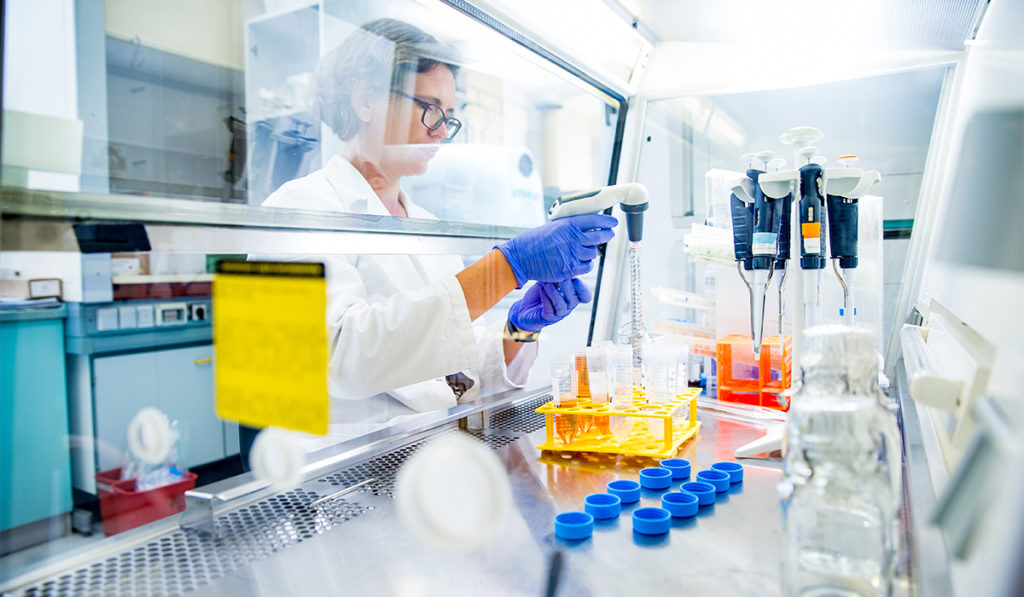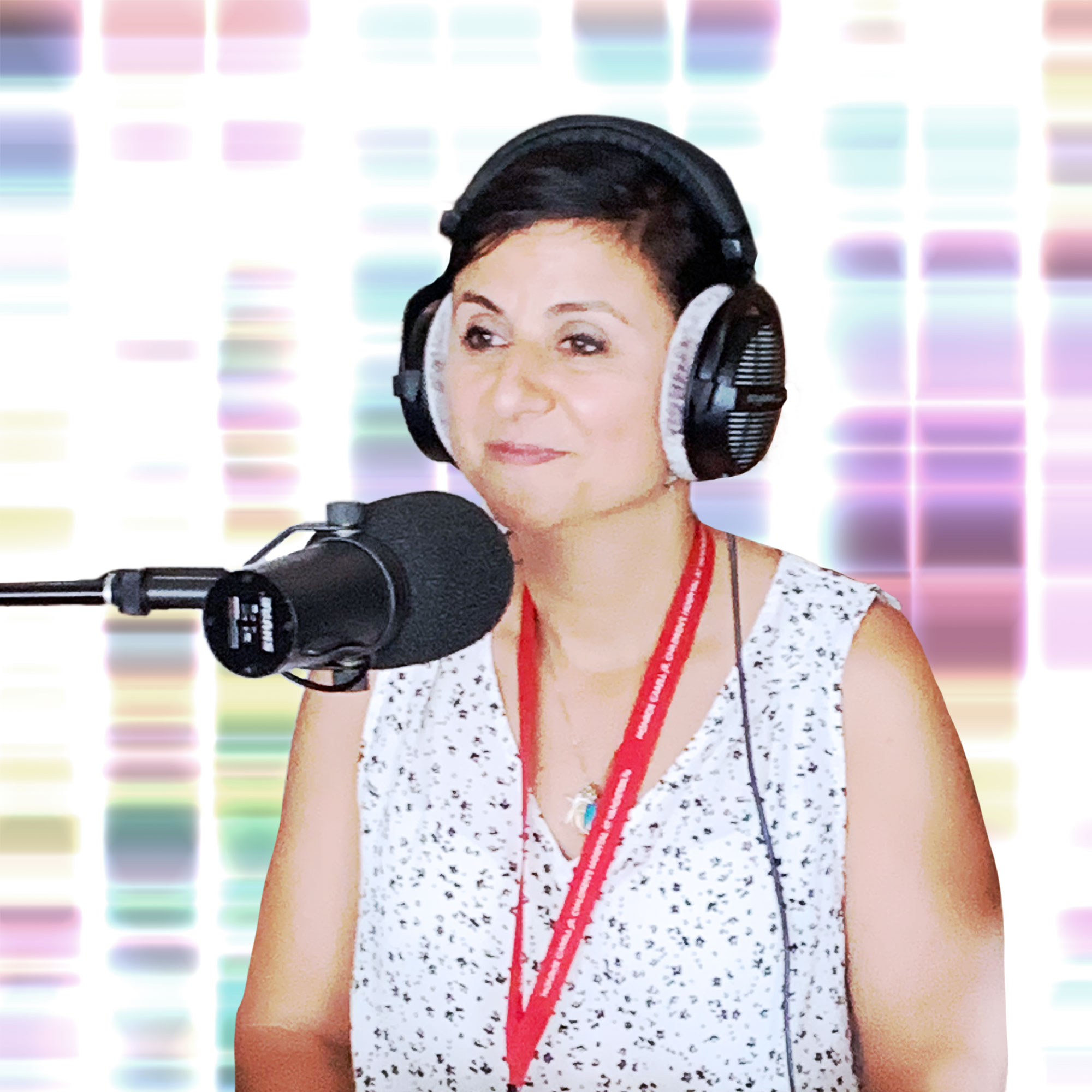This episode is called “Mutant Ninjas” because while most people were stumbling through their lives, calculating risk tolerance, or eyeballing whether that random person is really six feet away, these experts pivoted to unleash their specialized knowledge on the ever evolving SARS-CoV-2. They, and colleagues around the world, are trying to get out ahead of the virus that causes COVID-19 and find ways to neutralize it.
“It’s like my whole life has been prepared to continue to study not only this virus, but all other viruses, and really trying to understand how can we get the best vaccines for these individuals. It’s so important to continue to do surveillance because, who knows? I mean, every couple of years, there’s new things, new viruses that are emerging, and continuing in this platform is important. It’s important. There’s so many questions that are out there that need to be answered.”– Natasha Halasa, MD, MPH, Craig Weaver Professor of Pediatrics in the Division of Pediatric Infectious Diseases
“Already with the wild success of MRNA platforms for vaccination, there’s renewed interest. There was interest before, but it’s been turbocharged now. And can we apply this to flu? Can we apply this to RSV or all these other human pathogens? And how far can we push this technology?” — Seth Zost, PhD, research fellow in the lab of James Crowe, Jr., at the Vanderbilt Vaccines Center.
“What we want to develop is silver bullets, basically, that will knock the virus out once and for all.”– Andrea Pruijssers, PhD, a coronavirus expert formerly in the lab of world renowned virologist Mark Denison, MD, now at Merck.
‘You can’t go backwards’
Halasa is a pediatric infectious diseases and vaccine expert who has traveled around the globe doing disease surveillance. She and her team leapt into action when COVID-19 hit because they knew there was a limited amount of time to collect precious, early samples that will be the foundation for research for years and maybe even decades to come. They switched into gear and got after it.
With the surveillance infrastructure in place, she and her team have been watching the data closely, looking for trends and new insights into the behavior of the virus and its lasting impact on our health. Some will be years down the road.
“You can’t go backwards and collect samples … so we knew how important it was to quickly deploy out and do that,” said Halasa. “This virus, itself, is devastating. It’s killing people, giving them sequelae, making them more tired than they normally were. They lost their sense of smell. They lost their sense of taste. They’re tired. They’re having chest pain. They’re brain fog. They talk about this brain fog, right? Why? Why does someone get more severe disease, someone got mild disease, someone was asymptomatic, yet some of those mild diseases turned into something that was more severe. This virus is like no other respiratory virus because it’s affecting all organ systems.”
Taking pandemic research lessons back to home labs
We live among many infectious diseases, and the events of the last two years are creating new opportunities to understand the human-pathogen relationship. And one thing is for sure, COVID-19 and SARS-CoV-2 are going to be around for a very long time — so what does that mean for research on coronaviruses and other diseases?
“It’s interesting because there were very few corona virologists or coronavirus experts prior to the SARS-CoV-2 pandemic. It was a field where there were very talented people working in it, but there were not a lot of people working in it. It was a small tight-knit group. And then there’s been this massive influx, and I’m an example of this where I’m classically trained in influenza, people who surged in as part of pandemic response. And then, I think eventually some of those people are going to go back to their own fields. They brought things to the table that they applied to the pandemic, and they’re going to take things back and then think about applying them to their own areas of interest and new areas in the future. I think that will be something that’s very fruitful,” said Zost.
Shape-shifting and a constant chase
It may seem like the virus is one step ahead, but the roll-out of Remdesivir and now Molnupiravir is attributable to work that’s gone on for years. The Denison lab is among the world’s foremost coronavirus experts, and their work remains on the vanguard of alleviating the effects of this pandemic. All because scientists persistently test theories and look for compounds that are effective against a variety of pathogens.
“Right now, we see the coronavirus, the current pandemic is evolving all the time, and that’s just something that viruses and, in particular, RNA viruses, so viruses that their genome is made up of RNA, that’s what they do. They mutate constantly,” said Pruijssers. “And so, we’re constantly chasing this virus, especially with things like monoclonal antibodies, which are very effective. The treatments we have right now are very effective at keeping people out of the hospital and making them survive COVID-19, which is really great, but the virus constantly mutates in that area that the monoclonal antibodies binds in order to neutralize the virus is particularly under heavy selection pressure, so the virus is constantly evolving to try to get out of that pressure. You have to come up with new monoclonal antibodies and make new therapies and combinations.”
Tune in on your favorite platform: Apple Podcasts, Google Podcasts, Spotify, Stitcher, Pandora, and the Health Podcast Network. New episodes drop every week.
Join the conversation on Twitter and LinkedIn with #ListenDNA and by following @VUMC_Insights.








